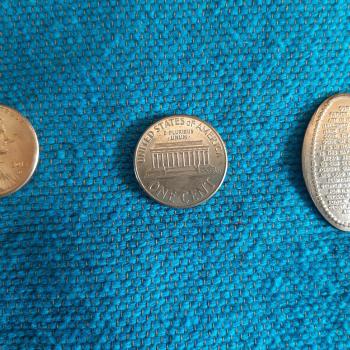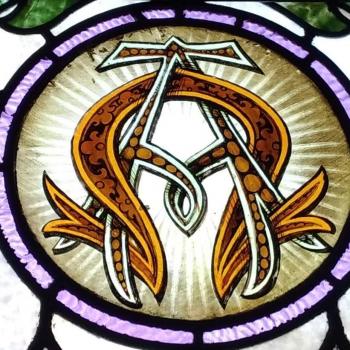
On Wednesday evenings, I’ve been teaching Jr. Highers how to pray. These kids admit what most of us won’t: they don’t know how to pray. Though Paul writes to the Romans that “we do not know how to pray as we ought,” most of us forget this most of the time. We push our way forward in our prayers like we know what we want when we should be borrowing a page from Abram of old and asking God questions (8:26).
The more I’ve prayed, the less I feel I know how to pray. I’ve sometimes been apt to pray grinder-style, this person, this need, again and again and again. Grind daily through the list. There’s some biblical mandate for praying like this. Jesus compared prayer to a widow who bugs a powerful judge. “Because this widow keeps bothering me, I will grant her justice,” says the judge (Luke 16:5). On one reading, the squeaky wheel gets the answered prayer.
So too, God invites us to straightforward authenticity in prayer. As St. Catherine Labouré wrote: “God always speaks to you when you approach him plainly and simply.” Or as Hebrews puts it: “Let us therefore approach the throne of grace with boldness” (4:16). We’re children, not servants, and the Father loves to hear us. What parent wouldn’t give a fish or an egg to their child when she asks (Luke 11:11-12)? So we go to God and ask straightforwardly and boldly for what we want.
Yet I suspect we often don’t even know what it is that we want. Our hopes are tangled, our image of our future self blurred. Lord, grant us health, money, and love. Sure, that kind of praying for more is easy enough. But what of holiness? The fruits of the Spirit grow on the wood of the cross.
Here’s where questioning prayer comes in. Epochs ago, Abram responded to God’s big promises with a question: “O Lord God, what will you give me, for I continue childless?” (Genesis 15:2). Indeed, Abram was the master of questioning prayer. “Can a child be born to a man who is a hundred years old?” (Genesis 17:17). “Will you indeed sweep away the righteous with the wicked?” (Genesis 18:23). The one time Abram (then Abraham) didn’t question God is the most jarring: when God tells him to sacrifice his son Isaac (Genesis 22). Isaac certainly had a question: “Where is the lamb for a burnt offering?” (v.7). Abraham just took his knife and went.
Although we inhabit an age that valorizes the skeptic, there’s a kind of questioning that is faithful in its seeking. Reverent questioning like this expands our imaginations for God’s “abundantly far more than we can ask or imagine” (Ephesians 3:20). Abram becomes Abraham as he questions God, going from “great father” to “father of many.” God had more in mind than fulfilling Abram’s pyramidical, patriarchal vision—the one where Abram becomes the great father. Instead, God envisioned Abram as the “father of many”–emphasis on many—as through Jesus God would make Abram’s children (by faith if not by DNA) as uncountable as the stars (Genesis 15:5).
Questioning prayers create space for God to put questions back to us, like Jesus did at Siloam and along the road with blind Bartimaeus. “Do you want to be made well?” and “What do you want me to do for you?” (John 5:6; Mark 10:51). Who—What—When—Where—Why—and How? become doorways into knowing ourselves and God more deeply. As Paul puts it: God “searches the heart” (Romans 8:27). We can become aware of God’s searching by listening for the questions.
As I’ve grown older, the accent of my prayers has fallen on discovery. I find myself doing less catapulting requests at heaven and more wondering and waiting. I pray like Paul: “What shall I do, Lord?” (Acts 22:10 KJV)–except that often my prayers become some variation on “What shall I want, Lord?” It’s prayer not as getting but as becoming.
You see, too often we binarize prayer. We think it’s either yes or no, and we rate prayer’s effectiveness by whether God gives us what we want. Taking a questioning stance helps us move beyond those simplistic conceptions of prayer. Instead, we begin to see ourselves as walking and talking with Jesus along the road (Luke 24:32). Questioning prayer becomes questing prayer. We become ourselves a little more through prayer, because we discover that there’s no stationary us that knows what to pray for. Like Abraham, who “set out, not knowing where he was going,” we journey with God through mysteries we do not comprehend (Hebrews 11:8). Our prayers are matchsticks in that mysterious dark.












